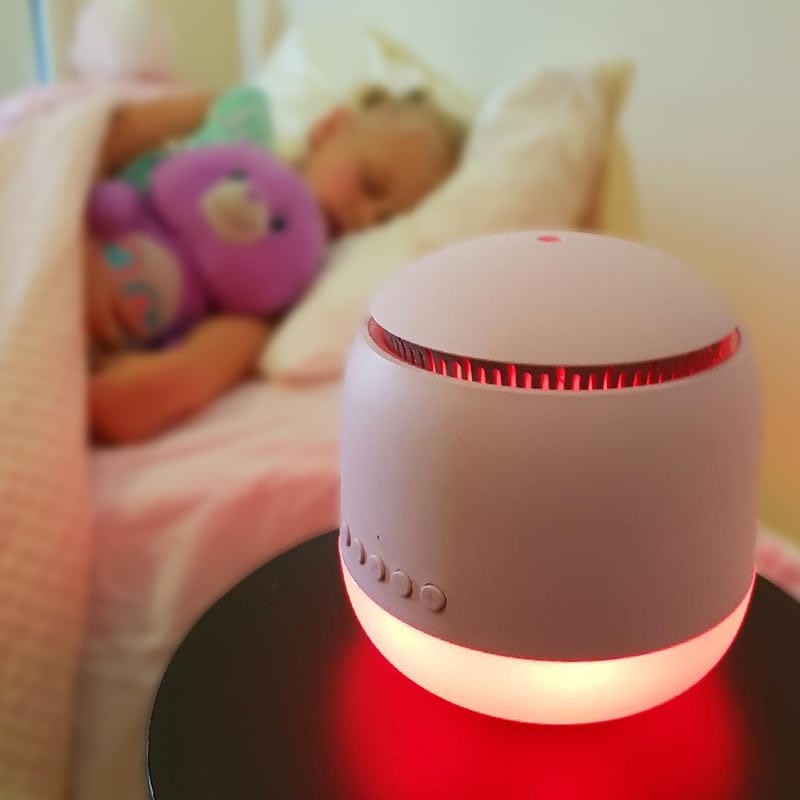Winter is the time of the year that every mum dreads.
The kids drag themselves home from school with a runny nose and endless coughing. At the same time, their husbands moan in bed from the incurable disease known as “man-flu”.
The bins in the house are piling up with wet tissue, and the medicine cabinet is full. You experience this scene many times in your household.
Emma Rosenblum witnesses the competition between her sons getting sick every winter. Despite stuffing her kids in many layers, they still get runny nose, cough and ear infections. When the kids recovered, Emma and her husband took turns getting sick. The paediatrician told her, “little kids get sick a lot. Winter is the worst”.
Cold and influenza (flu) are viral respiratory illnesses caused by different viruses. Despite displaying similar symptoms, a cold is less severe than the flu. The notable difference is that flu can cause nausea, fever, body aches and pain, chills and sweat.
It is a common misconception that there is a cure for a cold or flu. Queensland Health explains that antibiotics treat infections caused by bacteria. But viruses cause colds and flu. There is not much you can do. You have to wait for your body’s immune system to fight off the viral infections all on its own.
The Social and Economic Costs of Cold & Flu
Health Direct reports that an average adult suffers from two to four colds yearly. Children can get as many as ten colds per year. According to the Australia Institute of Health and Welfare, there are more deaths due to conditions related to the circulatory system, pneumonia, and influenza between June and August.
Flu causes:
- an average of 13,500 hospitalisations each year
- more than 3,000 deaths among Australians aged over 50 years.
The “Economic Report into the Cost of Influenza to the Australian Health System” reports the enormous economic cost of health care related to colds and flu. GP consultations alone cost the Australian Government about $140 million in 2007.
On 27th Feb 2019, The Selector reported that the loss of productivity due to influenza is about $7 billion p.a. for employers in Australia.
The direct effect is evident in small to medium businesses (SMBs). The significant loss of staff working hours and loss of potential sales are hurting SMBs. SMBs have to recoup these losses through higher prices and reductions in wages.
Humidity Between 40% to 60% Is Better For Your Health.
While the medical community has no effective cure for colds and flu, you can help your family feel better.
You could take plenty of rest and drink plenty of water to help your body fight off the viruses. Research has shown that humidifiers can:
- decrease the chance of contracting colds and flu
- shorten the recovery time,
- allow you to breathe with ease and sleep better.
The relative humidity drops below 40% in most parts of Australia during winter. The study “Indirect Health Effects of Relative Humidity in Indoor Environments” concludes that the ideal indoor relative humidity should be between 40% to 60%. The relative humidity outside of this range can result in serious health consequences.
Children without humidification are seven times more likely to be absent from school due to colds and flu.

A case study found that the level of absenteeism for a call centre during the winter periods dropped after the installation of humidifiers.
Humidifiers Help To Prevent Influenza
A study found that humidifiers may reduce the risk of developing the flu. The researchers found that relative humidity above 40% deactivated the influenza virus. Therefore, making them much less infectious.
Myatt et al. found that portable home humidifiers increase the relative humidity to a comfortable range. The increase in relative humidity resulted in a decrease in airborne viruses. So, it helps to prevent colds and flu from spreading among workers in an open-plan office. Thus, improving winter productivity.
Humidifiers help you breathe easier.
Relative humidity can drop below 30% at night in typical winter months in most parts of Australia. The low relative humidity causes the nose and airways to dry up, making breathing harder.
Cold and flu symptoms often exhaust breathing.
Many households in use heaters to stay warm during winter. The heaters lower the air humidity.
Some people may experience nosebleeds when the air is dry.
Zhao et al. found that relative humidity increases the perceived nasal congestion. Humidifiers help moisturise the nasal, throat and lung passages. Therefore, making it easier for air to pass through.
During winter, we cover our mouth and nose with our hands to build up the humidity to breathe easier.
Doctor Joseph Mercola recommends humidifiers to increase the relative humidity for better breathing. The humidifiers are also helpful when using air conditioners during the hotter months.
Humidifiers help you feel better quicker.
Keeping your throat and nasal passages moist can with the healing process.
So this results in a reduction of symptoms like sneezing and coughing. A humidifier helps to break down mucus and expel it from the body quicker. As a result, you cough less and minimise inflammation of the airways.
Vicks pointed out that adding humidity into your environment will keep your nasal passages moist. The extra moisture will help to drain the mucus fast. Thus, you can recover from a runny nose quicker.
According to the US National Heart, Lung, and Blood Institute, humidifiers may reduce acute bronchitis symptoms. So, helping you stay comfortable.
Humidifiers help ward off future illnesses.
Nasal hair and mucus filter out large particles, preventing them from entering your respiratory system. Microscopic hair, called cilia, along your respiratory passages, moves sweepingly to clean the air passages. Cilia capture bacteria, germs, dust, and other foreign particles from entering your nasal passages.
The mucus produced by cells in the trachea and bronchial tubes keeps air passages moist. It aids in stopping dust, bacteria and viruses, allergy-causing substances, and other substances from entering the lungs.
Humidifiers help keep your nasal airways moist. Therefore, allowing cilia and the mucus gland to work. Thus, prevent future illnesses by filtering out the disease-causing pathogens in the air.
Humidifiers aid you in sleeping on cold winter nights.
Humidifiers help your nasal passages and throat to stay hydrated. You will find it easy to breathe with hydrated nasal passes and throat.
You should feel comfortable and fall asleep quicker. You will also sleep through the night.
A good night’s sleep can help your body fend off illness and recover faster if you get sick.
What Type Of Humidifier Is Good For a Cold and Flu
There are many types of humidifiers on the market today. Knowing which model is most superior for relieving cold and flu can be confusing. Each type of humidifier has its advantages and disadvantages. Each works to ease cold and flu symptoms to certain a degree. So, the humidifier depends on your preference, circumstances and budget.
Some manufacturers claim that vaporisers are the only humidifiers that help with colds and flu.
They claim that:
“warm steam relaxes the throat muscles, loosens congestion, eases the cough reflex, soothes a sore throat and helps to keep your little one sleeping“.
But, the water vapour cooled to near room temperature when it reached your nose. Thus, it has no “warming” effect on the body.
Essential Oils Help You Recover Fast
We recommend choosing a humidifier that is also able to diffuser essential oil. The diffusers will assist you in recovering quicker from cold and flu. The ancient Egyptians and the ancient Chinese used essential oils for medicinal benefits.
Some of the top essential oils to help with cold and flu are:
- Lemon clears your nasal passages and allows for steady breathing.
- Lavender helps with sleep and relieves stress, fatigue, depression and headaches.
- Peppermint reduces coughs, sinusitis, and throat infections.
- Thyme possesses antibacterial properties to help fight respiratory infections.
- Eucalyptus has antibiotic properties that help fight against cold and flu.
- Tea tree oil inhibits bacterial growth and fights infections.
- Chamomile has antiviral and antibacterial properties to relieve cold and flu symptoms.
- Clove (eugenol) possesses antiviral and antifungal properties to clean surfaces or air.
- Cinnamon cleans surfaces or air.
- Rosemary possesses antibacterial and antifungal properties to clean surfaces or air.
Health Warnings
Some manufacturers, retailers and blogs claim that humidifiers can help with snoring.
Many factors can cause snoring, including:
- anatomy of your mouth and sinuses
- alcohol consumption
- allergies
- a cold
- weight
There is not enough scientific evidence to support that humidifiers help with snoring. You may try out a humidifier if you have allergies or sinuses caused by a cold and the flu. But, generally, snoring is a manifestation of a deeper health issue. Only sleep studies can work out the cause and the treatment for snoring.
Ensure you follow specific usage and maintenance for your humidifier. So, you can reduce the danger of health-related issues. For example, you should use clean tape or distilled water for your cool mist humidifiers.
